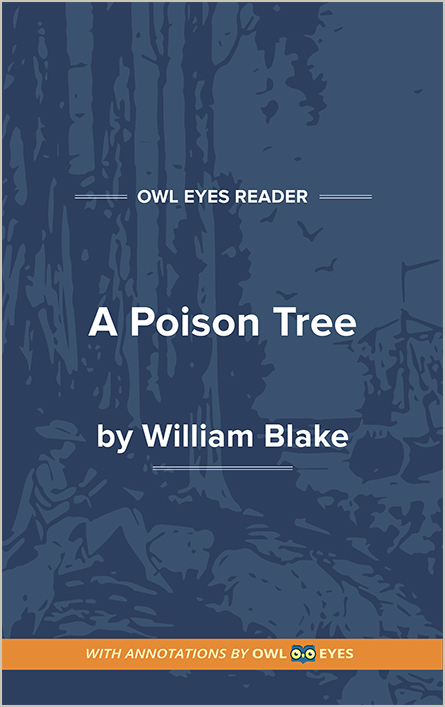- Annotated Full Text
- Literary Period: Romantic
- Publication Date: 1794
- Flesch-Kincaid Level: 9
- Approx. Reading Time: 0 minutes
A Poison Tree
William Blake first published Songs of Innocence and of Experience in 1794. The poems that comprise the second half of the collection, Songs of Experience, tell various tales of sin and innocence lost. The underlying theme of humanity’s fall from a state of grace finds its origins in the Book of Genesis. Nowhere is this biblical allusion more powerful than in “A Poison Tree,” a poem about the deadly effects of unchecked wrath. The poem’s speaker cultivates a growing contempt for an unnamed foe. The hateful speaker doubles as tempter: the wrath grows into a apple-bearing tree, drawing the mortal foe into a deadly trap. Blake constructs the poem as a parallel to the moment of original sin. Thus the speaker is Satan, the setting Eden, the apple the fruit of knowledge, the foe humanity itself. Blake’s personal mythological system serves as another useful gloss on the poem. The speaker can be seen as a manifestation of Urizen, a figure of Blake’s invention, a fallen god who upholds pure reason and loathes humanity. Blake thus uses the foe’s actions to explore the nature of human reason. The coldly logical speaker insists that the foe knows of the dangers within the garden. The foe, a flawed human, chooses death nonetheless.
- Annotated Full Text
- Literary Period: Romantic
- Publication Date: 1794
- Flesch-Kincaid Level: 9
- Approx. Reading Time: 0 minutes

